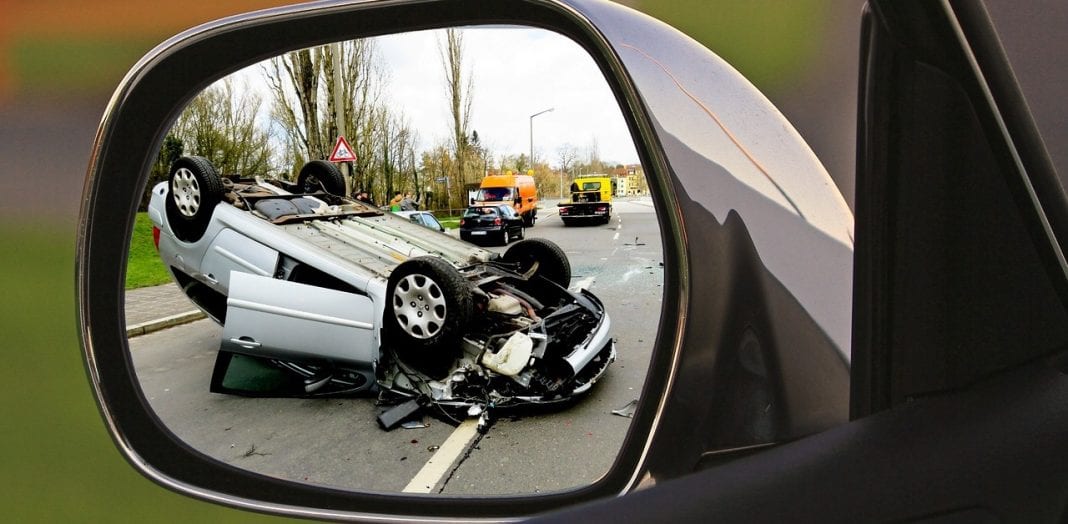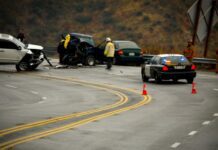Car accidents, whether minor or fatal, can literally or figuratively be a pain in one’s neck. The nuisance is only made worse by motorists who chose to flee the scene right after.
Section 20001 and 20002 of the California Vehicle Code make it illegal to flee from the scene of a hit and run. You can find out more about the elements and penalties of a Hit and Run here. While not everyone is keen to uphold the law, handling a hit and run situation can save you a lot more on your insurance premium or your insurance all together.
Here’s what to do and what NOT to do so you can win that insurance claim flawlessly and effortlessly.
What to Do After a Hit and Run
- Call 911 Immediately
This should be obvious especially when there is an injured victim. If anyone is injured, get them and yourself away from any potential lingering danger and dial 911 as soon as you can. Note: You should also call 911 even if no one is injured. This is for reporting and insurance purposes.
- Try and Find Witnesses
If you’re lucky enough, there may have been witnesses around during the incident. If you are in a position to move around, try and get as much information about the events from them. This should include details about the license plate, car model, make and color, as well as a close enough description of the motorist. If there were no witnesses, that’s ok. Any information that you can present to the police is better than nothing.
A dashboard camera would probably come in handy if you had one, so you should add this to your list of essentials in your next shopping spree or next Amazon order.
The best option for a witness is a security camera! Check with local businesses or car garages to see if any of those people would be willing to share their footage. You may just find out who exactly is responsible for the accident. Make sure you do this quickly because many companies do not keep footage for more than a week, so contacting them asap give you the best chance of having access to video footage.
- Take Photos
It should go without saying that photos are a great way to preserve the evidence of what’s happened at the scene. These photos might go a long way in helping you win your hit and run claim with your insurance provider. Take note and focus on things like skid marks, car body damage or paint transfer. If you were in the vehicle and sustained an injury, be sure to also take photos of any scratches or immediate signs of harm. You may not be a crime scene expert, but you could definitely give the CSI team a run for their money. No detail is too little or too insignificant.
- Report to the Police within 24 Hours
Hit and runs, as a crime in the California Vehicle Code, should be reported to the police within 24 hours. If the damage is not too significant, a police officer may direct you to the nearest collision reporting center. If the police officer does not see the need for this, it is best to take down his budge number, name and phone number. Insurers need a confirmation from the police before they can process your claim.
What NOT to Do After a Hit and Run
- Do NOT Start a Car Chase
This may look cool and exhilarating on your TV, but a car chase poses as much risk to yourself as it does to other motorists and pedestrians. Depending on the extent of the damage, you or your car may not be in a position to survive a full on car chase with a battered vehicle and a possible concussion.
- Do NOT Leave the Scene
Leaving the scene makes it harder for the police to do their job and match your experience with what’s left at the scene. This can largely affect your insurance premium, especially if the police are unable to ascertain the nature and extent of the damage.
- Do NOT Wait to Call the Police AND Don Hammond 323-529-3660
By notifying the authorities in due time, they can track the culprit within the radius of the incident and file a formal police report, which can aid you further in your insurance claim. If you are on the other side of a hit and run claim, contact an experienced lawyer who has experience dealing with criminal charges. Criminal Defense Hero Don Hammond is the attorney to handle difficult police officers and insurance companies who may be filing charges against you.



































